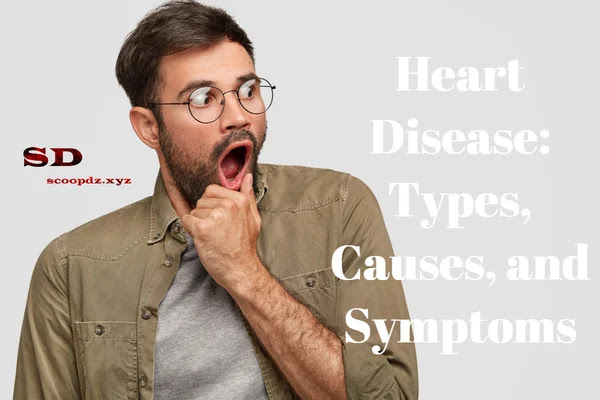There are many types of heart disease, and each has its own symptoms and treatments. For some, lifestyle changes and medications can make a big difference in improving your health. For others, you may need surgery to get the printer working properly again.
Learn about some of the most common types of heart disease and how to prevent and treat them.
Coronary artery disease (CAD)
CAD is the most common heart problem. With CAD, you can develop blocked coronary arteries. This leads to increased blood flow. The disease is usually the result of atherosclerosis, a condition that sometimes starts with atherosclerosis.
Coronary heart disease can cause chest pain, known as angina, or it can lead to a heart attack.
Some factors that may increase your risk of coronary artery disease include:
- Age (For men, the risk of heart disease goes up after age 55; for women, the risk rises sharply after menopause.)
- inactivity
- Indication of disease or metabolism in them
- Income history of coronary disease
- Genetics
- High blood pressure
- High LDL cholesterol levels or low "good" HDL cholesterol levels
- obesity
- smoking
- Stress
Arrhythmia
If you have an arrhythmia, your heart has an irregular beating
pattern. Serious arrhythmias often develop from other heart problems, but they
can also occur on their own.
Heart Failure
Heart failure is when your heart doesn't pump blood as well as it
should to meet your body's needs. It's usually caused by coronary artery
disease, but it can also be caused by thyroid disease, high blood pressure,
heart muscle disease (cardiomyopathy), or another condition.
Heart valve disease
Your heart has four valves that open and close to direct blood flow between the heart's four chambers, lungs, and blood vessels. A defect can make it difficult for the valve to open and close. If this happens, blood flow may be blocked or blood may leak. Your valve may not open and close to the right.
Causes of heart valve problems include infections such as rheumatic fever, congenital heart defects, high blood pressure, coronary artery disease, or the result of a heart attack.
Diseases of the heart valves include:
Endocarditis: This is an infection usually caused by bacteria that
can get into your blood and settle in your heart during an illness, after
surgery, or after using intravenous medications. It often happens when you already
have valve problems. Antibiotics can usually cure it, but the condition is
life-threatening without treatment.
If your heart valves are seriously damaged as a result of
endocarditis, you may need surgery.
Rheumatic heart disease: This condition develops when your heart
muscle and valves are damaged by rheumatic fever, which is associated with
strep throat and scarlet fever.
Rheumatic heart disease used to be more common in the 20th century.
But doctors are now able to prevent it by using antibiotics to treat the
diseases that cause it. If you get it, symptoms usually show up many years
after infection.
Pericardial Disease
Any disease of the pericardium, the sac of the heart, is called pericardial disease. One of the most common diseases is pericarditis or inflammation of the pericardium.
It is usually caused by an infection with a virus, inflammatory diseases such as lupus or rheumatoid arthritis, or an injury to your pericardium. Pericarditis often follows open-heart surgery.
Cardiomyopathy (heart muscle disease).
Cardiomyopathy is a disease of the heart muscle, also known as the myocardium. It stretches, thickens, or stiffens. Your heart may become too weak to adequately pump blood.
There are many possible causes of the disease, including genetic heart disease, reactions to certain medicines or toxins (such as alcohol), or an infection from a virus. Sometimes chemotherapy causes cardiomyopathy. Doctors often cannot find the exact cause.
Congenital heart defects
Congenital heart defects occur when something goes wrong while the heart is forming in a baby still in the womb. The heart abnormality sometimes causes problems right after birth, but sometimes there are no symptoms until you grow up.
One of the most common congenital heart defects is a septal defect. These are the gaps in the wall that separates the left and right sides of your heart. You could have a procedure in place to close the hole.
Pulmonary stenosis is another type of abnormality. A narrow valve restricts blood flow to your lungs. The valve can be opened or replaced through a procedure or surgery.
In some babies, a small blood vessel known as the ductus arteriosus does not close as it should at birth. When this happens, some blood flows back into the pulmonary artery, putting strain on your heart. Doctors can treat this with surgery or a procedure, or sometimes with medicines.



Comments
Post a Comment